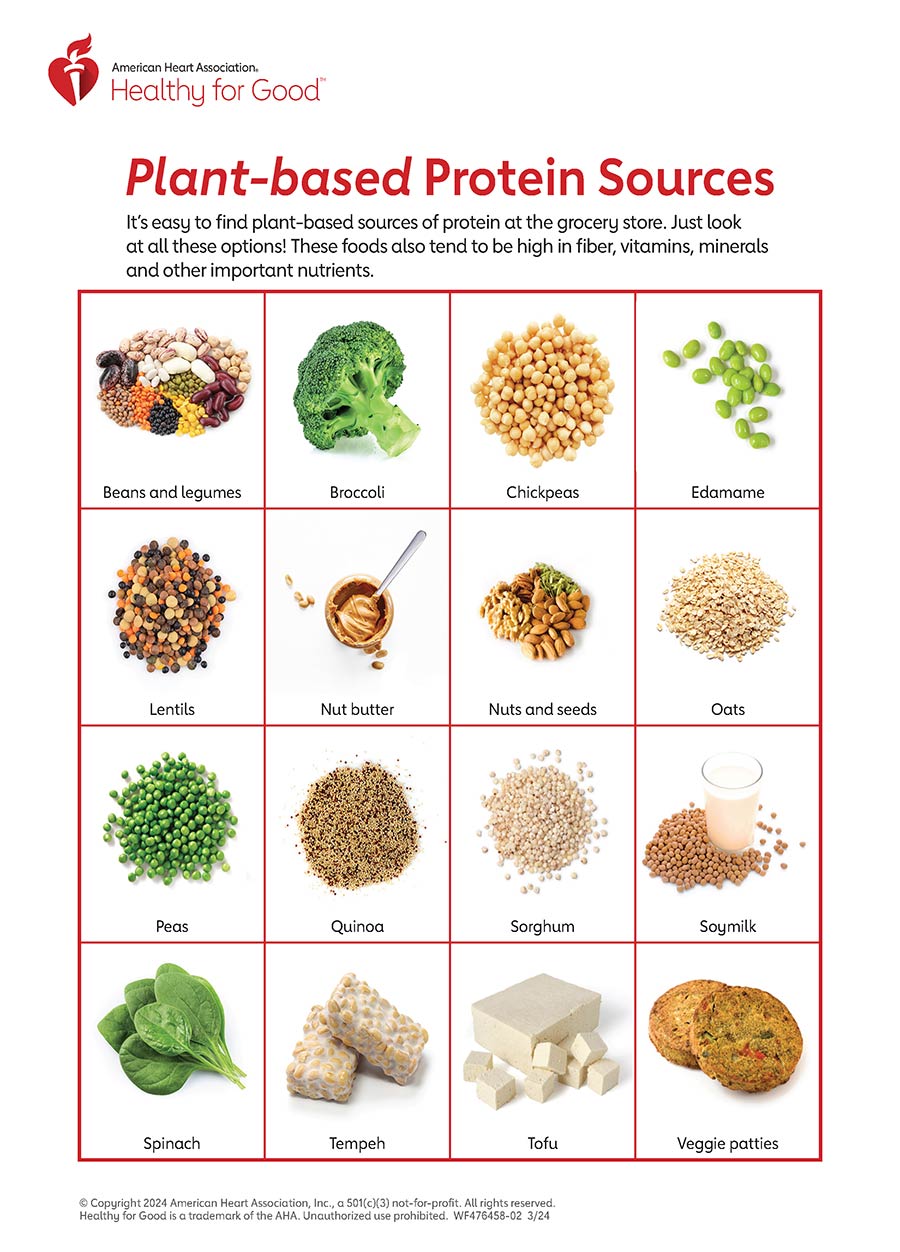Hidden Ingredients in Sugar Free Sauces: What to Watch Out For
Wiki Article
All Regarding Healthy Food: Benefits of Taking On Plant Based Choices
The discussion surrounding plant-based diets has gained significant attention in recent times. Many people are checking out the potential health benefits, dietary benefits, and environmental impacts associated with these nutritional selections. As individuals end up being a lot more knowledgeable about their food's influence on health and sustainability, inquiries develop regarding the practicalities of adopting such a way of living. What details modifications can one expect, and how might these selections reshape not only individual health and wellness however also the world's future?Recognizing Plant-Based Diet Regimens
Several people associate plant-based diet plans primarily with vegetarianism or veganism, these diet plans can include a vast array of eating patterns that prioritize entire, minimally processed plant foods. Such diet regimens commonly include fruits, veggies, whole grains, nuts, beans, and seeds, while getting rid of or restricting animal items. This flexibility enables people to tailor their nutritional choices according to personal preferences and dietary requirements. Some may embrace a largely plant-based diet plan while still periodically consuming meat or dairy, commonly described as a flexitarian method. The emphasis continues to be on incorporating more plant foods, which can cause a varied array of tastes and meals. Understanding these various interpretations of plant-based consuming is crucial for appreciating its availability and allure in modern food culture.Health Perks of Plant-Based Foods
The wellness advantages of plant-based foods are substantial, offering a nutrient density advantage that supports overall health. Research study suggests that these foods can enhance heart wellness and play an essential duty in efficient weight administration. By incorporating extra plant-based options, individuals might improve their nutritional selections and promote lasting health and wellness.Nutrient Thickness Advantage
Nutrient density plays a crucial role in the health and wellness benefits of plant-based foods, making them a compelling selection for those looking for a well balanced diet plan. Plant-based foods, such as fruits, vegetables, beans, nuts, and entire grains, are commonly abundant in necessary vitamins, minerals, and anti-oxidants while being lower in calories. This high nutrient density permits individuals to take in fewer calories while still meeting their nutritional needs. Furthermore, these foods are packed with dietary fiber, advertising digestion wellness and assisting in weight administration. By integrating nutrient-dense plant-based options, customers can boost their general health, support their body immune systems, and minimize the risk of persistent illness. Ultimately, the nutrient density of plant-based foods emphasizes their relevance in a health-conscious way of life.Heart Health Renovation

Weight Administration Support
Along with promoting heart health, a plant-based diet regimen can significantly aid in weight monitoring. This dietary strategy highlights whole foods such as fruits, veggies, legumes, nuts, and entire grains, which are typically reduced in calories and higher in fiber contrasted to animal-based products. The high fiber web content helps raise satiety, lowering total calorie intake. In addition, plant-based diet plans are usually rich in essential nutrients while reduced in undesirable fats, making it easier to preserve a healthy and balanced weight. BBQ Sauces. Research study indicates that people that adopt a plant-based way of life have a tendency to have reduced body mass indexes (BMIs) and experience more effective weight management compared to those who eat meat-heavy diet regimens. Subsequently, welcoming plant-based options is a critical selection for efficient weight monitoring
Nutritional Worth of Plant-Based Components
Plant-based ingredients are abundant in important nutrients, supplying a diverse array of vitamins, minerals, and anti-oxidants that add to overall health. A comparison of protein sources exposes that while pet items are usually deemed exceptional, numerous plant-based choices supply appropriate healthy protein and various other helpful substances. Recognizing the dietary worth of these components can assist individuals make informed dietary choices.Essential Nutrients in Plants
Nutrient-rich ingredients found in plants offer a varied variety of necessary nutrients that add significantly to general health. These ingredients are abundant in vitamins A, C, and K, which sustain immune function, vision, and blood clotting, respectively. On top of that, plants offer essential minerals such as potassium, magnesium, and calcium, crucial for heart wellness, muscle mass feature, and bone toughness. The existence of fiber in plant-based foods aids food digestion and promotes a healthy and balanced intestine microbiome. Antioxidants, located generously in veggies and fruits, assistance combat oxidative stress and anxiety and minimize inflammation. Numerous plant foods are reduced in calories yet high in nutrients, making them an outstanding option for those seeking to maintain a healthy weight while guaranteeing ideal nutrient intake.
Comparing Protein Sources
Protein resources differ significantly in their dietary profiles, with plant-based ingredients offering unique benefits. Unlike pet proteins, which typically include saturated fats and cholesterol, plant proteins often tend to be reduced in these undesirable components. Legumes, nuts, seeds, and whole grains are abundant in necessary amino acids, fiber, vitamins, and minerals. Lentils give high protein content along with considerable iron and folate, while quinoa is a complete healthy protein, using all 9 crucial amino acids. Furthermore, plant-based proteins are usually gone along with by antioxidants and phytochemicals that sustain overall wellness. The shift to plant-based healthy protein sources not just improves dietary intake yet likewise straightens with sustainable nutritional methods, reducing environmental influence and promoting lasting health and wellness advantages.Environmental Impact of Plant-Based Eating
As understanding of climate modification expands, numerous people are checking out lasting dietary options that can greatly minimize their ecological footprint. Plant-based consuming has actually emerged as a considerable factor to decreasing greenhouse gas exhausts, which are primarily related to animals production. The cultivation of fruits, veggies, grains, and beans generally needs less sources, such as water and land, compared to animal farming. Furthermore, plant-based diet regimens can bring about decreased deforestation, as less land is needed for grazing animals or expanding pet feed. By changing towards plant-based options, consumers can sustain biodiversity and promote much healthier ecological communities. Overall, welcoming plant-based eating not just advantages individual wellness yet additionally stands for an essential step toward ecological sustainability and preservation initiatives.Conquering Common Misconceptions
While several people identify the advantages of a plant-based diet regimen, numerous false impressions often discourage them from fully embracing this lifestyle. A typical belief is that plant-based diets do not have sufficient protein; nonetheless, countless plant sources, such as vegetables, nuts, and tofu, provide sufficient protein. Additionally, some assume that this diet regimen is pricey, when actually, staples like beans, rice, and seasonal veggies can be rather cost effective. An additional mistaken belief is that plant-based eating is overly limiting, whereas it really provides a diverse selection of flavors and foods. Finally, several fret that a plant-based diet might cause deficiencies, yet with proper preparation, individuals can get all needed nutrients, including vitamins and minerals, while appreciating a large variety of scrumptious meals.Tips for Transitioning to a Plant-Based Lifestyle
Making the shift to a plant-based way of life can be an enriching experience, though it commonly requires some advice to navigate the initial modifications. Initially, people are encouraged to start slowly, integrating even more fruits, veggies, legumes, and entire grains into their meals while lowering meat and dairy usage. Dish preparation is essential; preparing a regular food selection can assist ease the modification and protect against final harmful choices. Exploring brand-new recipes and cooking approaches can likewise preserve and boost the experience enjoyment concerning plant-based eating. Furthermore, signing up with support system or communities can provide motivation and share useful suggestions. Ultimately, staying informed regarding nutrition warranties balanced dishes, preventing deficiencies while fostering a healthy and balanced, gratifying plant-based lifestyle.Delicious Plant-Based Dish Ideas
Discovering delicious plant-based dish concepts can inspire people to welcome a more nourishing diet. One prominent alternative is a hearty quinoa salad, featuring cherry tomatoes, cucumber, and a spicy lemon-tahini clothing. Another fave is a Recommended Reading full-flavored lentil stew, packed with carrots, celery, and aromatic natural herbs, excellent for a reassuring supper. For morning meal, over night oats made with almond milk, chia seeds, and topped with fresh berries offer a healthy beginning to the day. Additionally, a dynamic vegetable stir-fry with tofu and a range of vivid veggies can be a fast yet satisfying meal. Creamy avocado toast on whole-grain bread, sprinkled with seeds and flavors, uses a basic yet savory treat. These dishes display the selection and splendor of plant-based consuming. check this
check this Frequently Asked Inquiries
Can a Plant-Based Diet Regimen Offer Enough Healthy Protein?
The concern of whether a plant-based diet regimen can offer sufficient healthy protein prevails. Numerous resources, including legumes, nuts, seeds, and whole grains, can meet healthy protein needs effectively, sustaining a nutritious and balanced diet regimen for people.Are Plant-Based Diet Plans Suitable for Children?
The suitability of plant-based diets for children relies on mindful preparation. Appropriate nutrients should be assured, including minerals, vitamins, and healthy proteins. With appropriate advice, such diet plans can sustain healthy development and growth in kids.Just how Do I Dine Out on a Plant-Based Diet plan?
Eating in restaurants on a plant-based diet plan entails seeking restaurants with varied food selections, requesting alterations, and checking out vegan-friendly alternatives. Planning ahead and connecting dietary preferences can boost the eating experience while maintaining dietary selections.What Are Usual Irritants in Plant-Based Foods?
Typical allergens in plant-based foods include soy, gluten, nuts, and seeds - Gluten Free BBQ Sauce. Individuals complying with a plant-based diet regimen should recognize these irritants and review labels thoroughly to prevent damaging responses and guarantee safe usageCan Plant-Based Diets Assist With Weight Loss?
Research indicates that embracing a plant-based diet plan might assist in weight-loss due to its normally reduced calorie thickness and greater fiber material. This mix can improve satiation, helping individuals handle their calorie consumption properly. Numerous individuals connect plant-based diet plans generally with vegetarianism or veganism, these diet regimens can encompass a wide array of consuming patterns that focus on entire, minimally refined plant foods. Nutrient density plays a vital function in the health and wellness benefits of plant-based foods, making them an engaging option for those seeking a well balanced diet. Plant-based diet regimens click this site have actually been shown to substantially enhance heart health, as they often include components that sustain cardio feature. In addition to promoting heart wellness, a plant-based diet plan can substantially help in weight management. A typical belief is that plant-based diets lack adequate healthy protein; however, countless plant sources, such as vegetables, nuts, and tofu, give ample protein.Report this wiki page